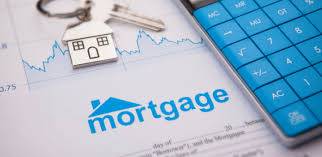Legal Framework Governing Mortgages in Ghana
In Ghana, the
legal framework governing mortgages is structured around a combination of
statutory laws, regulations, and judicial precedents. Mortgages are critical
financial instruments used to secure loans for property transactions, and the
legal system plays a crucial role in ensuring their proper execution,
enforcement, and protection of rights for both borrowers and lenders.
Key Statutory Laws Governing Mortgages in Ghana
- The
Land Act, 2020 (Act 1036)
The Land Act of 2020 is one of the most important pieces of legislation in Ghana regarding land rights and property ownership. It governs all land transactions, including mortgages. It provides for the creation of legal mortgages, registration of land titles, and the enforcement of property rights in cases of default.
Key Provisions:
- The Act
requires that mortgages must be registered with the Lands Commission for
them to be legally enforceable.
- It
establishes the right of the mortgagee (lender) to take possession of the
property if the borrower defaults.
- It also
introduces mechanisms for the mortgagee to sell the mortgaged property in
case of default, ensuring that lenders can recover their loans.
- The Act
also provides for equitable mortgages, where borrowers may deposit their
title deeds or other ownership documents without formal registration.
The Land Act aims to address the historical problem of
unclear land titles in Ghana, making it easier for individuals and institutions
to register and protect their mortgage interests.
- The
Borrowers and Lenders Act, 2008 (Act 773)
This Act governs the relationship between borrowers and lenders in Ghana. It regulates lending practices, including mortgage lending, to ensure that both parties are protected.
Key Provisions:
- It provides
a framework for regulating lending rates, ensuring that interest rates on
mortgage loans remain fair and do not exceed limits set by the Bank of
Ghana.
- The Act
establishes the roles and responsibilities of mortgage lenders, including
the requirement to provide clear terms and conditions to borrowers.
- It also
sets out procedures for the recovery of debts through enforcement
actions, including the process of taking possession of property in case
of loan default.
- The
Mortgage Act, 1972 (NRCD 96)
The Mortgage Act of 1972 governs the formal establishment of legal mortgages in Ghana. It defines the formal process of mortgage creation and registration, ensuring that both parties understand their rights and obligations.
Key Provisions:
- The Act
stipulates that for a mortgage to be valid, it must be executed by a deed
in writing, signed by the mortgagor (borrower) and the mortgagee
(lender).
- It
specifies that a legal mortgage in Ghana involves the transfer of legal
title to the lender until the loan is fully repaid, after which the
property title is returned to the borrower.
- The Act
also provides for the transfer of mortgages from one party to another and
the subordination of mortgages, allowing borrowers to take out additional
loans on the same property.
- The
Property Law of Ghana (Act 1047)
The Property Law, enacted in 2016, consolidates property rights and addresses issues related to the ownership, transfer, and use of property in Ghana. This law ensures clarity in land transactions, including mortgage agreements, and enhances property registration systems.
Key Provisions:
- It
clarifies the ownership rights of individuals and entities in relation to
land and real property.
- The
Property Law is important for lenders because it provides clear guidance
on how to establish valid mortgages on properties and how to handle
disputes over ownership and mortgages.
- The
Companies Act, 2019 (Act 992)
While the Companies Act does not directly govern mortgages, it affects mortgage transactions involving corporate borrowers. For companies seeking to secure financing for real estate projects, the Companies Act outlines the procedures for registering and managing company assets, including real estate.
Key Provisions:
- It
establishes the processes for companies to create mortgages over their
assets, including real estate.
- The Act
also ensures that corporate mortgage transactions are legally sound by
specifying procedures for the creation of mortgages and the registration
of security interests.
Key Institutions Involved in Mortgage Regulation
- The
Lands Commission
The Lands Commission plays a pivotal role in property transactions in Ghana, including the creation of mortgages. It is responsible for registering land titles and ensuring that property ownership is clearly documented. Without registration at the Lands Commission, a mortgage may not be legally recognized or enforceable. - Bank
of Ghana
The Bank of Ghana regulates the financial sector, including mortgage lending. The Bank ensures that mortgage institutions operate within the legal framework and that interest rates on loans are controlled to prevent predatory lending. The Bank of Ghana also monitors financial institutions that offer mortgage loans to ensure their compliance with laws such as the Borrowers and Lenders Act. - The
Judicial Service
In case of a mortgage default or dispute, the Judicial Service of Ghana is responsible for adjudicating matters relating to property rights and enforcement. The courts play a critical role in ensuring that mortgage agreements are executed according to the law and that the interests of both lenders and borrowers are protected. - The
National Housing Authority (NHA)
The National Housing Authority oversees affordable housing development in Ghana and works in partnership with financial institutions to facilitate mortgage lending for low- and middle-income earners. This is especially important in addressing the housing deficit in the country.
Legal Aspects of Mortgages in Ghana
- Creation
of Legal Mortgages
- To create a
legal mortgage in Ghana, the property title must be transferred to the
lender (mortgagee) as collateral for the loan. The borrower (mortgagor)
must sign a deed in writing, and the mortgage must be registered with the
Lands Commission.
- The
registration of the mortgage ensures that the lender's interest is
protected and can be enforced in case of default.
- Equitable
Mortgages
- In the case
of an equitable mortgage, the borrower retains ownership of the property,
but the lender holds documents such as title deeds as collateral for the
loan.
- Equitable
mortgages are easier to establish than legal mortgages, as they do not
require formal registration with the Lands Commission.
- Foreclosure
and Possession
- If a
borrower defaults on a mortgage, the lender has the right to take
possession of the property. The lender may seek court orders to take
possession and sell the property to recover the outstanding debt.
- The Land
Act, 2020, ensures
that the foreclosure process is legally sound and that the mortgagor’s
rights are protected throughout the process.
- Mortgage
Registration
- Registration
of mortgages is essential for both the protection of the borrower and the
lender. In Ghana, the Lands Commission is the statutory body responsible for the
registration of all land transactions, including mortgages.
- Mortgage
registration is important for establishing priority of claims in the
event of default or dispute. The registration of mortgages prevents fraud
by ensuring that the ownership and financial interests in property are
transparent.
Challenges in the Legal Framework
- Land
Title and Ownership Issues
One of the major challenges in the legal framework governing mortgages in Ghana is the issue of unclear land titles. Traditional land tenure systems often result in disputes over ownership, making it difficult to create secure mortgages. - High-Interest
Rates
The legal framework also faces challenges in regulating the cost of mortgage loans. Despite the Borrowers and Lenders Act, high interest rates remain a barrier to accessing mortgage financing in Ghana. - Enforcement
Issues
While legal mortgages are enforceable through the courts, the process can be lengthy and costly. There are also issues related to judicial delays, which can hinder the timely enforcement of mortgage agreements.
Conclusion
The legal
framework governing mortgages in Ghana is robust, with several laws and
regulations in place to facilitate property transactions and ensure fairness
between borrowers and lenders. However, challenges such as land title issues, high interest rates, and enforcement delays continue to affect the mortgage
market. Addressing these challenges and enhancing the legal framework will be
crucial in making mortgage financing more accessible and effective for property
owners and developers in Ghana and across Africa.


